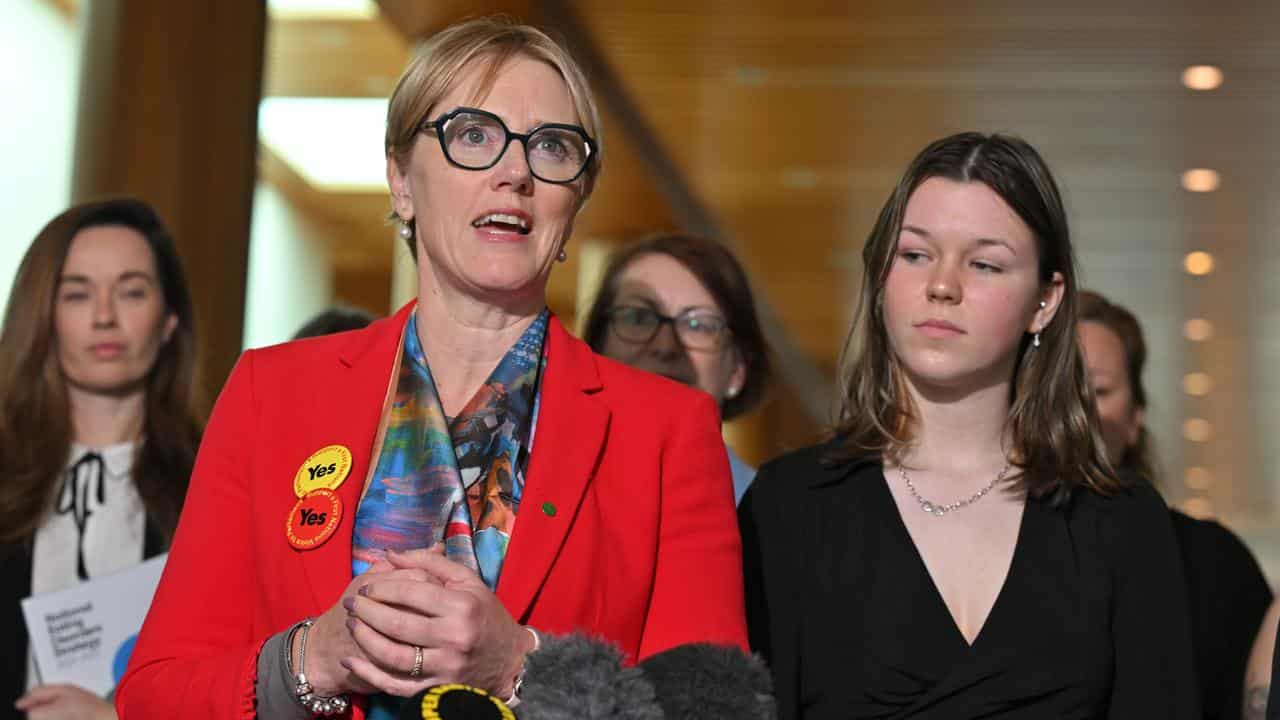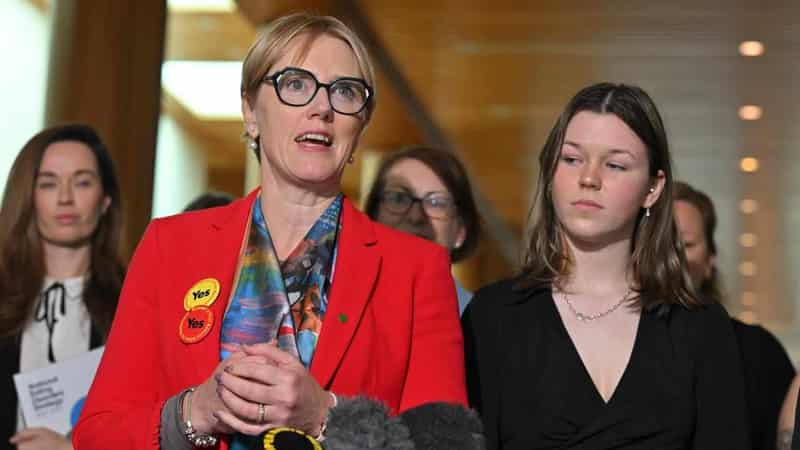
Katya Jaski was 12 when social media algorithms began feeding her dieting content.
Two years later, she was diagnosed with anorexia.
Through popular apps such as Instagram, Snapchat and TikTok she was exposed to videos about dieting and the "perfect" body shape.
"You're sort of drawn to the more dieting and health-eating sort of things, so by the time you're 13 it's normal for you to start getting thoughts that maybe I should start dieting," Ms Jaski told AAP.
"You don't realise that's not a normal thought for young girls."
The 17-year-old is now in recovery, but says social media has continued to challenge her progress, exacerbating the severity and duration of her symptoms because of the rabbit holes the algorithms fuel.
"When you're in the middle of an eating disorder, it's hard to say 'no, I don't want this', because you do want it - the eating disorder wants it," Ms Jaski said.
She said the spiral can start with something seemingly benevolent such as a "what I eat in a day" video, or a TikTok of someone showing off their gym routine, but can quickly devolve into calorie counting and weight-loss tips.
This comes after research from the University of Melbourne found TikTok presented twice as many appearance-related videos to users with an eating disorder than to other clients.
Lead researcher Scott Griffiths says the TikTok algorithm was driven more by the amount of time a user spent watching a video than whether or not they liked it.
"Clinicians and users themselves underestimate just how much of this content they're receiving, and it's a huge unseen barrier to treatment," Dr Griffiths said.
Independent MP Zoe Daniels on Thursday hosted a round-table with Ms Jaski, representatives from Meta and experts in eating disorder prevention before announcing they would form a working group to come up with recommendations.
The group will also be pushing for an inquiry into body image to address the growing number of people diagnosed with eating disorders.
Ms Jaski said TikTok was invited to the parliamentary round-table, but did not attend.
"I don't think the platforms have necessarily done any wrong, but if there is an opportunity to make a change in the way that you deliver content to people, and they don't make that change, that's when you start to see they are not focused on the best interests of the people," she said.
Ms Jaski hopes the platforms implement tools that allow individuals to place blanket bans on pro-eating disorder content, or face stronger regulations.
For now, she marks individual videos that come across her feed as she continues on the road to recovery.
"When you see constant eating disorder content, it can feel like that's all there is in the world," Ms Jaski said.
"But once you sort of step out of that mindset ... you see the real world.
"(You can) realise your worth and realise that you are so much more loved than your eating disorders would ever make you feel."
Lifeline 13 11 14
Butterfly Foundation 1800 334 673









